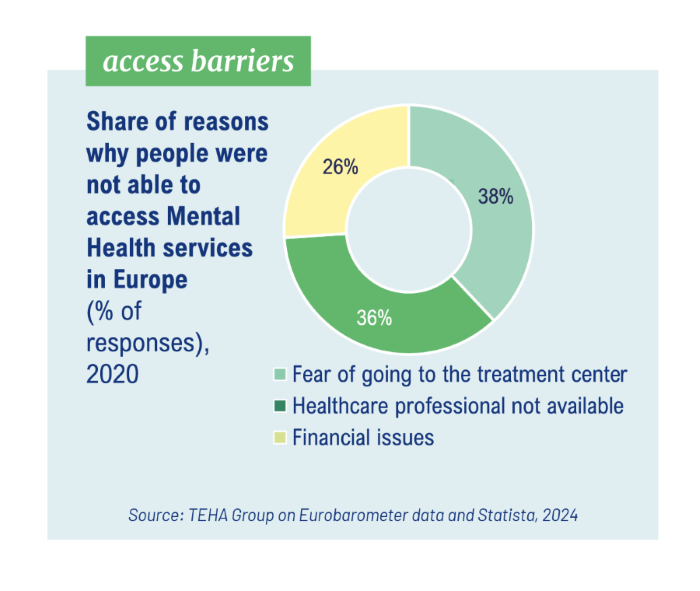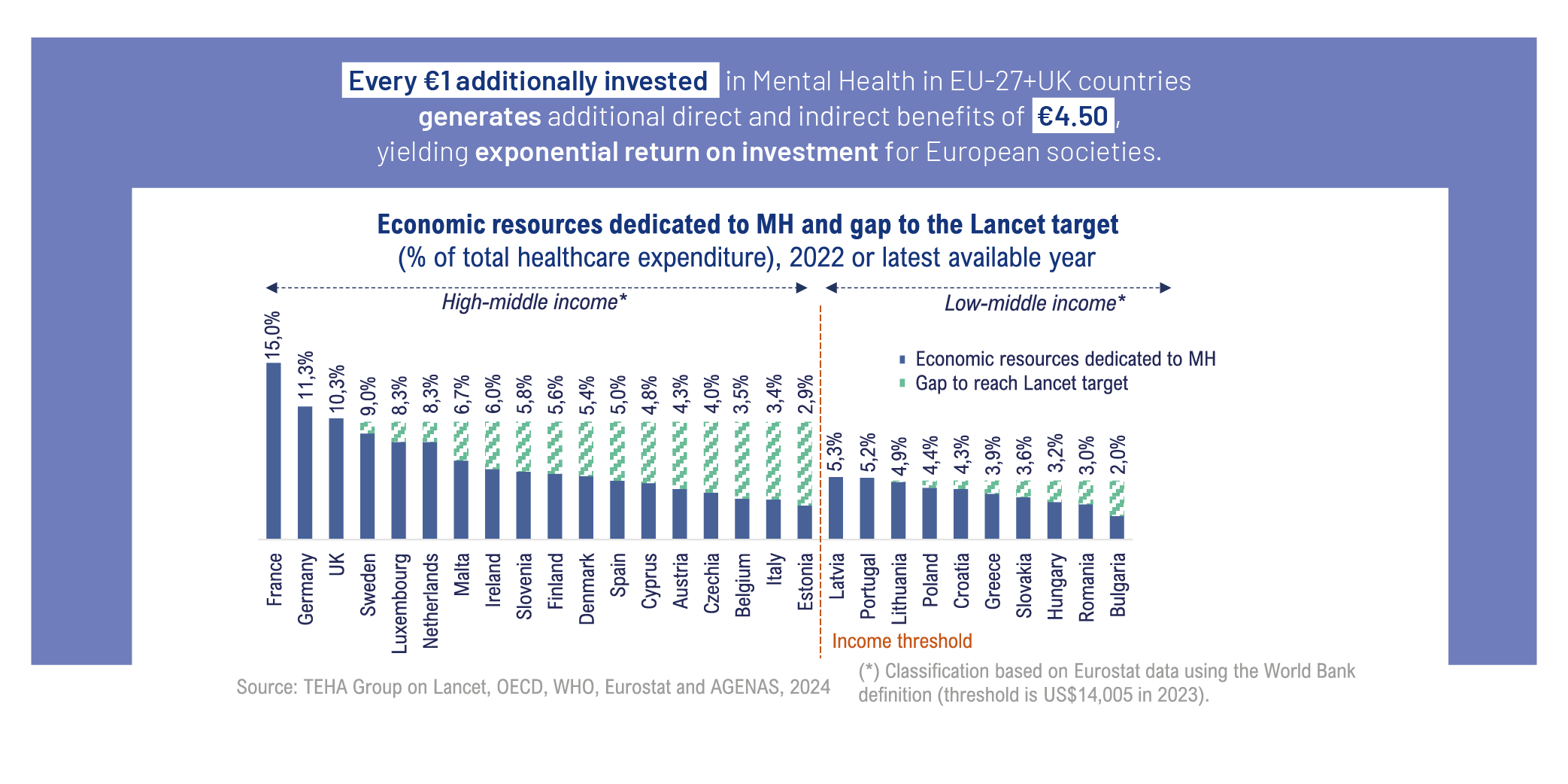Insights from the latest Headway Mental Health Report: a call to action for Mental Health

Each year, nearly 123 billion euros in costs related to mental health issues could be saved across Europe. Specifically, for every euro invested in mental health care, there would be a return of 4.5 euros, demonstrating an exponential return on investment. How? This is highlighted by the "Headway - Mental Health Index 4.0" report, developed by The European House – Ambrosetti in collaboration with Angelini Pharma, which provides a roadmap for saving costs and calls on nations to take action. The report, which is based on the analysis of 54 key indicators, is part of the “Headway – A New Roadmap in Brain Health: Focus Mental Health” initiative, launched in 2017.
The Impact of Mental Health Problems in Europe
Over the past four years, the pandemic, conflicts, climate change, biodiversity loss, unemployment, and rising living costs have worsened the already poor mental health levels in the European population, particularly among the most vulnerable groups.
In 2021, mental health issues in Europe increased from 14.9 to 16.1 cases per 1,000 inhabitants, with the rise being even more pronounced among those under the age of 15, where the rate jumped from 8.6 to 10.1 cases per 1,0001. Mental and behavioral disorders account for approximately 4% of all deaths in Europe, where more than 17% of Years Lived with Disability (YLDs) are attributed to mental health problems, with nearly one in three cases affecting the 0-14 age group.

Unmet Needs in Mental Health Care
Alongside this mental health landscape, unmet needs remain prevalent across many European countries, where more than 50% of people face barriers — whether economic, geographic, healthcare-related, or stigma-related — when accessing services. This is evidenced by data on suicide rates among hospitalized patients, post-discharge follow-up, and excess mortality.
In Europe, the treatment gap — defined as the difference between the prevalence of a disorder and the percentage of those affected who receive treatment — is estimated to be 45% for major depression, 40% for bipolar disorder, and 18% for schizophrenia2.

The Call to Action
Investing in mental health is essential for both overall health and productivity. However, the allocation of resources varies significantly between European countries, with the average standing at 5.7% across the 27 EU countries plus the UK. As early as 2018, The Lancet Commission recommended that high-income countries allocate at least 10% of their healthcare budgets to mental health, and that low- and middle-income countries allocate 5%3.

The Headway – Mental Health Report confirms that investment in high-income countries should be set at 10% of the healthcare budget and raises the minimum share for mental health spending in low- and middle-income countries to 6.5%4. An additional annual investment of 27.4 billion euros to meet these targets in Europe could lead to savings of 79.4 billion euros in direct costs to national healthcare systems, along with a further 43.5 billion euros in indirect costs5. Investing in additional mental healthcare resources can prevent over one-fourth of the costs incurred by healthcare systems and society as a whole.
Click here to read the full Headway Mental Health Report and access the press release for more information.
References
- TEHA Group on Eurostat and GDB data, 2024
- TEHA Group on OECD Data, OECD (2021), A new benchmark for Mental Health Sistems and Simon et al. (2023), Viewpoint: Assessing the value of Mental Health treatments in Europe, 2024
- TEHA Group on Lancet, OECD, WHO, Eurostat and AGENAS, 2024
- TEHA Group on Eurostat, Lancet, OECD, NHS and other sources, 2024
